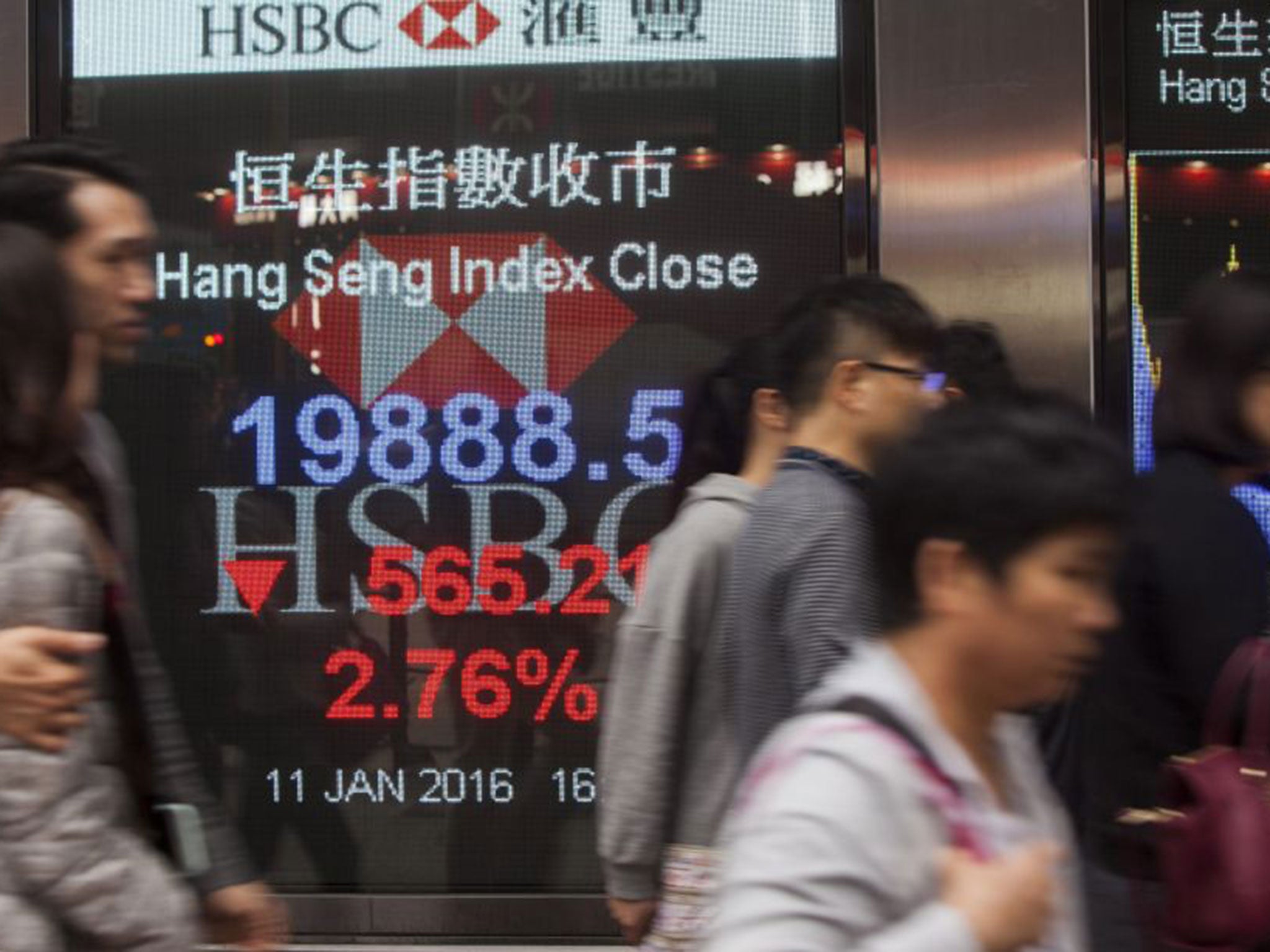China’s stock market misery continues as currency fears mount
The CSI 300 Index of major companies slipped by a further 5 per cent, following the two 7 per cent plunges last week

Support truly
independent journalism
Our mission is to deliver unbiased, fact-based reporting that holds power to account and exposes the truth.
Whether $5 or $50, every contribution counts.
Support us to deliver journalism without an agenda.

Louise Thomas
Editor
The Chinese stock market suffered a brutal opening to a second week of trading yesterday, as fears grew about the fragility of the economy and confusion reigned over the intentions of policymakers in Beijing.
The CSI 300 Index of major companies slipped by a further 5 per cent, following the two 7 per cent plunges last week that activated the exchange’s new circuit breakers and suspended trading.
The index has shed 14.4 per cent over 2016 so far and is now back to the levels of September, when shares started to recover after the huge bust over the summer. The latest bout of selling followed disappointing figures over the weekend, showing Chinese consumer inflation rising by just 1.6 per cent in December. Producer prices were down 5.9 per cent on the year, suggesting growing deflationary pressures in the world’s second largest economy.
The yuan strengthened by 0.36 per cent against the dollar to $6.5693 after the central bank moved its daily fix higher, but traders remained anxious about the currency strategy. The yuan is down more than 1 per cent against the dollar this year, having been allowed to weaken by 4.5 per cent over the course of 2015 by the central bank.
At the weekend the bank’s chief economist, Ma Jun, said fluctuations in the currency against the dollar were likely to increase as it targeted a basket of currencies. But analysts and traders suspect China might be following a depreciation strategy designed to help ailing exports.
“Different signals about FX policy have wrong-footed market participants,” said Paul Mackel of HSBC. “In this context, we expect yuan volatility to remain high, while depreciation pressures are likely to remain strong.”
Jane Foley, a currency strategist at Rabobank, said: “The authorities clearly want to signal that it will not be a one-way trade in the renminbi .”
Mark Williams of Capital Economics said that while there was no doubt the Chinese economy is slowing down, he was sceptical of the idea that fears about growth were driving stock prices. “Much of the slowdown seems to have occured a year or more ago,” he said. “China’s financial markets are in turmoil, but the same can’t be said of the economy”.
“We think China’s economy is stabilising in the fourth quarter,” said Zhou Jingtong, of Bank of China in Beijing. “There are no signs that the economy is getting worse, as the official PMI improved in December. Consumer prices remained high, while the factory-gate prices did not drop further.”
Subscribe to Independent Premium to bookmark this article
Want to bookmark your favourite articles and stories to read or reference later? Start your Independent Premium subscription today.
Join our commenting forum
Join thought-provoking conversations, follow other Independent readers and see their replies
Comments